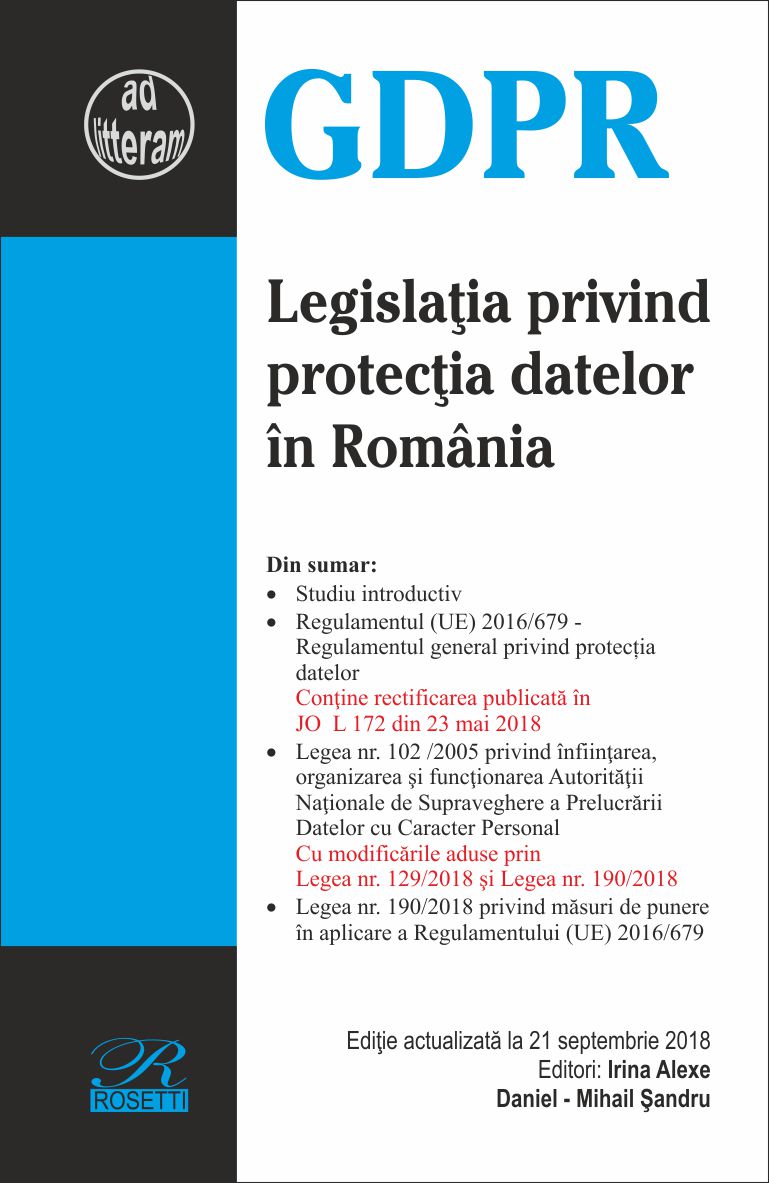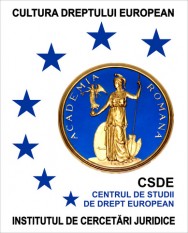Il gasiti aici [FR].
Papa Benedict al XVI-lea despre etica si capitalism. Care dintre ele a esuat?
9 iulie 2009 — Mihai SandruUltima reuniune G8 coincide cu noua enciclica papala, CARITAS IN VERITATE.
Sau, cum ar veni, episcopul Romei despre globalizare si subsidiaritate. Un fragment extras din pct. 57 al documentului, in limba engleza:
„Subsidiarity is first and foremost a form of assistance to the human person via the autonomy of intermediate bodies. Such assistance is offered when individuals or groups are unable to accomplish something on their own, and it is always designed to achieve their emancipation, because it fosters freedom and participation through assumption of responsibility. Subsidiarity respects personal dignity by recognizing in the person a subject who is always capable of giving something to others. By considering reciprocity as the heart of what it is to be a human being, subsidiarity is the most effective antidote against any form of all-encompassing welfare state. It is able to take account both of the manifold articulation of plans — and therefore of the plurality of subjects — as well as the coordination of those plans. Hence the principle of subsidiarity is particularly well-suited to managing globalization and directing it towards authentic human development. In order not to produce a dangerous universal power of a tyrannical nature, the governance of globalization must be marked by subsidiarity, articulated into several layers and involving different levels that can work together. Globalization certainly requires authority, insofar as it poses the problem of a global common good that needs to be pursued. This authority, however, must be organized in a subsidiary and stratified way[138], if it is not to infringe upon freedom and if it is to yield effective results in practice”.
Textul in FR suna mai exact. Din pacate, varianta in limba latina n-a aparut inca.
reactii
UK. Comisia privind UE din Camera Lorzilor – raport privind viitorul supravegherii & reglementarii financiare in UE
18 iunie 2009 — mihai„The City” si izolarea britanica in UE
10 iunie 2009 — mihaiEvident, in contextul discutiilor actuale despre reglementarea pietelor financiare pe fondul crizei economice; din The Telegraph. Istoria in cauza este interesanta si demna de urmarit.
UK. Comisia pentru afaceri economice (Camera Lorzilor) – raport privind supravegherea & reglementarea sectorului bancar
3 iunie 2009 — mihaiComunicare a Comisiei Europene privind autoritatile comunitare de supraveghere a sectorului financiar
29 mai 2009 — mihaiUrmare a raportului de Larosiere, avem deja comunicarea Comisiei privind viitoarea infiintare a autoritatilor comunitare de supraveghere a sectorului financiar.
Comunicarea, intitulata „European financial supervision„, se gaseste aici. [deocamdata doar in EN, FR, DE]. O discutie asupra acesteia cu alta ocazie.
Spre crearea unui Consiliu european privind riscul sistemic & a unui sistem european al autoritatilor de supraveghere – raspuns la criza economica din spatiul comunitar. Opozitia partii engleze
20 mai 2009 — mihaiUrmare a recomandarilor grupului de Larosiere. Din Financial Times; chestiunea de ordin juridic aici priveste temeiul juridic prin Tratatul CE.
European plan for financial regulation faces UK obstacles
Proposals for a radical overhaul of financial supervision in Europe, due to be published next week, are likely to put Brussels on a collision course with the UK. A draft of the European Commission’s working document on financial supervision, obtained by the Financial Times, suggests that EU officials are determined to push ahead with the two-tiered approach suggested this year by Jacques de Larosiere, the former French central banker, as they try to guard against future financial crises. In particular, the draft recommends the creation of a European Systemic Risk Council, to assess and warn of threats to financial stability in the region. A „European system of financial supervisors” is also to be set up to oversee individual banks and financial institutions. Linked to this, there are plans to upgrade three existing pan-EU coordinating committees to become European supervisory authorities for the banking, insurance and securities sectors respectively, with recommendations that the „strengthened framework” be up and running in 2010. The three new bodies would be asked to develop harmonised rules and common approaches to supervision and to settle potential disputes between national supervisors, who would continue to handle day-to-day matters. The organisations could also be given responsibility for supervising „certain entities with pan-European reach [such as] credit rating agencies and EU central counterparty clearing houses”, the draft says. However, it is understood that these proposals are likely to encounter fierce resistance from the UK authorities. Sources familiar with the UK position said that one main objection would probably centre on the legality of giving binding mediation powers to European supervisory authorities, so that they could ultimately determine the outcome of a dispute between national supervisors. The other fundamental concern is likely to centre on the splitting of supervisory responsibility from fiscal responsibility – and allowing the new pan-EU bodies to supervise entities which, in a crisis, might need bail-out funds from national governments. A UK government spokesperson said last night: „We will consider [the report] carefully when the document is published. „It’s a starting-point for discussion.” Proposals for the European Systemic Risk Council look less contentious. In the draft, the Commission backs Mr de Larosiere’s suggestion that the ESRC be chaired by the president of the European Central Bank but adds: „The ESRC chairperson could, alternatively, be any central bank governor elected by the membership. „If the chairperson comes from a central bank within the euro system, it would seem appropriate that a vice-chairperson should be elected from among those member states outside the euro area, and vice versa.” The draft also stresses that the ESRC would not have any legally binding powers but would report regularly to member states and the European parliament The Commission’s working document is due to published on May 27. It might then be discussed by EU finance ministers as early as June and, possibly, reviewed by EU leaders when they meet at a summit later that month. Depending on the political progress made during the summer, the Commission could then draw up more detailed legislation by the autumn.
UK. Raport al unei comisii parlamentare din Camera Comunelor privind reforma „guvernarii corporative” si a remuneratiilor din „City”
19 mai 2009 — mihaiEi bine, titlul este plin de barbarisme. Insa, in esenta, treaba sta asa:
Banking Crisis: reforming corporate governance and pay in the City
Raportul a fost pregatit in cadrul Comisiei parlamentare insarcinate cu controlul parlamentar asupra autoritatilor publice fiscale si financiare din Regat, Treasury Committee [*]
„City” desigur este „City of London”.
Gasiti raportul aici.
UK. Nou raport despre viitorul serviciilor financiare
11 mai 2009 — mihaiUK international financial services – the future
Iata.
Franta. Decret privind conditiile de remunerare a „cadrelor de conducere” din intreprinderi
5 aprilie 2009 — mihaiSuna frumos, n’asha?, „cadre de conducere”. E vorba despre intreprinderi ce primesc ajutoare de stat sau care beneficiaza de sustinerea statului.
Decretul a fost adoptat „datorita faptului” (sic!) crizei economice actuale.
Asadar,
Décret n° 2009-348 du 30 mars 2009 relatif aux conditions de rémunération des dirigeants des entreprises aidées par l’Etat ou bénéficiant du soutien de l’Etat du fait de la crise économique et des responsables des entreprises publiques
aici.
UK. Raportul Turner privind reglementarea in domeniul bancar la nivel global
19 martie 2009 — mihaiTurner Review of global banking regulation aici.
Comisia Europeana. Consultare privind viitorul supravegherii serviciilor financiare in UE
11 martie 2009 — mihaiConsultation on the future of financial services supervision in the EU urmarea raportului Larosiere, despre care am mai pomenit pe blog, se gaseste aici.
Invataturile incepatoare ale FMI despre tulburarea economica
10 martie 2009 — mihaiRaport de la Committee of European Banking Supervisors (CEBS)
9 martie 2009 — mihai
Mapping of supervisory objectives and powers, including early intervention measures and sanctioning powers
The Committee of European Banking Supervisors (CEBS) has published a report which maps, in detail, the supervisory aims and powers of banking authorities across the EU. The report has three principal sections:
- Part I provides a factual presentation of the objectives assigned to banking supervisors in the EU;
- Part II presents the results of a stock-taking exercise on supervisory powers such as licensing, rule making and information gathering powers; and
- Part III is a stock-take and analysis of the present use of sanctioning powers examining the type and severity of sanctions, sanctioning procedures and the disclosure of sanctions to other authorities.
Aici.
Decizia Comisiei (23.01.2009) de infiintare a comitetului aici.
AMF (CNVM-ul francez) si raportul pe 2008 al agentiilor de rating
26 ianuarie 2009 — mihaiArticol. Criza financiara si interventia autoritatilor elvetiene
17 octombrie 2008 — mihaiFragmente:
On ne peut s’empêcher de le lire dans le contexte des mesures prises dans les pays de l’Union européenne sur le modèle adopté par le gouvernement britannique, un modèle qui a également influencé une modification du « plan Paulson » tel qu’il avait été adopté par le Congrès des Etats-Unis il y a trois semaines. Le choix des mesures par les autorités helvétiques et leur priorisation marquent une différence notable, qui s’explique en partie par la structure du marché bancaire suisse, en partie par les institutions et la culture politiques de notre pays.
[…]
Cette crise financière a plus profondément bousculé les mentalités et aura une influence plus profonde sur la surveillance du secteur financier qu’on l’aurait imaginé. En Suisse, une prise de participation publique au capital de sa plus grande banque privée était quasi inenvisageable il y a encore 12 mois. Aujourd’hui, elle paraît s’imposer comme un moindre mal. Le fait que la Banque nationale offre désormais des liquidités en dollars et approvisionne les banques européennes en francs suisses au travers de la Banque centrale européenne a presque passé inaperçu. La politique de rémunération des dirigeants n’est plus un tabou. Il reste à voir quelles contraintes les pouvoirs publics seront en mesure d’imposer. Alors que le vent soufflait chez nous dans le sens de la réglementation négociée et de l’autorégulation, le retour en force des pouvoirs publics pour assurer la stabilité financière ouvre un nouveau chapitre. Personne n’en doute : il reste à en imaginer les modalités au-delà de cette crise, dans le plus long terme.
Articolul intreg aici.
Raport francez privind criza financiara
15 septembrie 2008 — mihaiCity of London. Raport despre serviciile financiare in UE
4 august 2008 — mihaiPoate cunoasteti ce este „City of London„. Asadar, a fost elaborat un nou raport (al treilea) despre situatia „industriei” (sic!) financiare din Uniunea Europeana. Autorii lui precizeaza, printre altele, o idee ce ar putea reprezenta o concluzie: „Nevertheless, there is a high risk that, on balance, regulatory developments will impact negatively on the growth prospects of the sector” (p. 88).
Raportul „The Importance of Wholesale Financial Services to the EU Economy 2008” se gaseste aici.
Marea Britanie. Raportul Thoresen
25 aprilie 2008 — mihaiThe former Economic Secretary to the Treasury appointed Otto Thoresen to carry out a review examining the feasibility of delivering a national approach to generic financial advice. The aim was to ensure greater access to high quality affordable financial advice for those most vulnerable to the consequences of poor financial decision-making.
Raport colectiv despre gestiunea riscurilor in timpul turbulentelor de pe piete
7 aprilie 2008 — mihaiObservations on Risk Management Practices during the Recent Market Turbulence, martie a.c., aici (x)
Elvetia – noi reguli privind participatiile
19 noiembrie 2007 — mihaidesi sunt unii care, poate, au neclaritati privind calitatea de stat membru a Elvetiei la UE, totusi stirea este notabila:
Publicité des participations
De nouvelles règles entrent en vigueur le 1er décembre 2007
La CFB vient de publier les nouvelles règles de l’OBVM-CFB en matière de publicité des participations. On se souvient des modifications intervenues le 1er juillet 2007 suite à plusieurs affaires d’OPA hostiles. Une nouvelle vague déferle, avec l’entrée en vigueur le 1er décembre 2007 des règles modifiées de la LBVM (adoptées en juin) et de l’OBVM-CFB.
La modification de la LBVM introduit notamment trois nouveaux seuils d’annonce (3%, 15% et 25% des droits de vote) qui viennent s’ajouter aux seuils existants, ainsi qu’une suspension judiciaire des droits de vote en cas de violation de l’obligation d’annonce.
En matière de dérivés, les positions susceptibles de réduire la participation de l’actionnaire concerné doivent désormais être prises en compte (positions short en droits d’acquisition ou de conversion et long en droits d’aliénation), en plus de celles susceptibles de la faire augmenter (positions long en droits d’acquisition ou de conversion et short en droits d’aliénation). Ces positions ne sont pas compensées entre elles.
Depuis la modification de l’OBVM-CFB entrée en vigueur le 1er juillet 2007, l’assujettissement de produits structurés ayant une composante d’option cash-settled suscite de nombreuses questions. Contrairement au projet, le texte définitif ne se réfère pas expressément à la prise en compte des produits structurés et à leur décomposition en dérivés distincts. Toutefois, selon la formulation large adoptée par la CFB, une (difficile) décomposition d’un instrument financier peut être nécessaire et certains produits structurés doivent être pris en compte pour le calcul des participations. Des clarifications de la CFB à ce sujet seraient les bienvenues.
Les franchissements de seuils intra-journaliers ne doivent plus être annoncés. En outre, les banques et négociants sont partiellement dispensés de prendre en considération certaines de leurs positions, notamment les titres détenus dans leur position de négoce. Ces exemptions présupposent d’une part l’absence d’intention d’exercer les droits de vote, et d’autre part que la participation représente moins de 10% des droits de vote.
Le régime applicable aux placements collectifs de capitaux (annonce par les sociétés de fonds et non par les ayants droit économiques, pas de consolidation des participations du groupe auquel appartient la société) a également été revu et adapté à la LPCC. Il est désormais réservé (i) aux placements collectifs autorisés en Suisse et (ii) aux placements collectifs pour lesquels la preuve est apportée qu’une autorisation à la distribution au public en Suisse (art. 120 LPCC) est possible. Cette exigence est en particulier problématique pour les hedge funds de droit caymanais. La révision clarifie également le régime d’annonce des placements collectifs à compartiments multiples et des SICAV à gestion externe.
Enfin, les circonstances ayant donné lieu à l’obligation d’annonce doivent être décrites (acquisition ou aliénation de titres, dérivés, prêt de titres etc.). Notamment, les conditions essentielles des instruments dérivés doivent être indiquées.
La CFB accorde aux investisseurs un délai au 29 février 2008 pour adapter leurs annonces aux nouvelles règles. Même si l’ordonnance modifiée n’est pas claire à ce sujet, les franchissements de seuils intervenant dès le 1er décembre 2007 ne devraient pas bénéficier pas du délai transitoire. Un commentaire de la CFB devrait prochainement clarifier certains points, dont espérons-le celui-ci. Par ailleurs, la CFB devrait revenir en 2008 avec de nouvelles règles relatives aux prêts de titres et opérations analogues, qui n’ont pas encore été modifiées contrairement à ce qui était initialement prévu.
Ce nouveau régime est d’une grande complexité. En matière de publicité des participations, les investisseurs apprécient que les régimes réglementaires des différents marchés soient standardisés. Certaines des nouvelles règles suisses nous rapprochent du droit européen, mais la prise en compte d’instruments financiers cash-settled va au-delà de ce que prévoit l’art. 11 de la directive 2007/14/CE. Si la transparence permet d’améliorer le fonctionnement des marchés, des obligations d’annonce trop lourdes peuvent engendrer des contraintes administratives importantes et détourner certains investisseurs des sociétés cotées suisses. Quoi qu’il en soit, le nouveau régime constitue une réalité normative que les investisseurs et intermédiaires financiers doivent assimiler au plus vite. A cet égard, on rappellera qu’une modification de l’art. 41 LBVM accompagnant la LFINMA, et qui devrait entrer en vigueur début 2009, permettra de sanctionner pénalement la violation d’une obligation d’annonce par négligence.
Elvetia – raport privind autoreglementarea si piata financiara
13 august 2007 — mihaiLa CFB vient de publier un rapport sur l’autorégulation dans le secteur financier suisse. Ce document vise à rendre compte de l’importance de l’autorégulation pour le marché financier suisse et à résumer la position de la CFB sur la question. Il livre un intéressant état des lieux en la matière, en Suisse et sur le plan international.






























